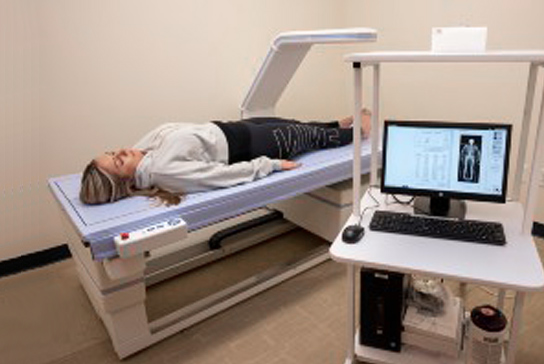Physiotherapy and Common Misconceptions About Physical Therapy

Is physical therapy for everyone? Explore some of the common misconceptions about physical therapy.
There is a tremendous rise in physiotherapy as positive feedback has been received from patients undergoing physical therapy.
Physiotherapy is used to treat a broad range of medical conditions, including those pertaining to aging, neurological disorders, women’s health, musculoskeletal disorders, and sports-related injuries.
A certified physio in Marrickville explained musculoskeletal physiotherapy as the treatment of injuries and wounds affecting the body’s muscles, soft tissues, and joints.
But must you have sustained an injury to qualify for physical therapy?
Join me as I uncover common misconceptions about physiotherapy.
Misconception 1: Physical Therapy is Painful and Uncomfortable.
Physiotherapy should not be unduly painful, although it will cause discomfort or soreness as you begin pushing your body to its limits to break the boundaries.
A qualified physio will work with you to create reasonable objectives, justify the course of therapy, and adjust the time and intensity of the exercises to accommodate your tolerance and advancement. Any comments or worries will be voiced to enable the physio to change the treatment plan.
Misconception 2: Physical Therapy Relies on Machines and Gadgets.
Although specific instruments and technology are used in physical therapy to help with assessment and treatment, the main focus of the hands-on, patient-centered approach is education and active engagement.
Physiotherapists undergo specific training to listen to your complaints, assess your movements, clearly identify your strengths and weaknesses, and align these statements to the treatment that suits them.
The technology is used to analyze body movements further but does not necessarily help in treatment procedures.
Misconception 3: Physiotherapy is for Old and Chronic Individuals
Physiotherapy definitely benefits older people and those with chronic diseases, and it is not limited to them.
Individuals from various backgrounds can benefit from physical therapy to treat common musculoskeletal conditions, as well as recuperate from sports injuries, surgeries, and injuries.
Physical therapy can enhance athletic performance, improve the overall posture, and boost the mental state and well-being.
Misconception 4: Physiotherapy is Expensive and Time-consuming.
Statistically, it is costly, but even though it could involve some financial and time commitment, physical therapy can be a beneficial and affordable treatment.
Physical therapy helps to void later treatment, like surgeries and medications.
Misconception 5: Physiotherapy is not Diverse
Physiotherapy is not a predetermined or uniform method, although it may adhere to some broad guidelines and procedures.
Physiotherapists are aware that everyone is customized and dynamic, taking into account their preferences, goals, and way of life.
Physiotherapists strive to provide you with the finest service possible by staying current on the most research trends and research.
The Impact of Physiotherapy in Our Everyday Life
Setting goals is one of the most important aspects of physiotherapy. Physiotherapists assist people in defining attainable goals that are appropriate for their unique needs and capabilities.
As a result, people may have increased motivation and empowerment, which may boost their levels of day-to-day activity, improve their quality of life, and improve their mental health.
Additionally, physiotherapy can enhance one’s perception of their body and sense of self. People who are self-conscious or embarrassed about their appearance may experience negative thoughts and emotions as a result.
By treating physical disabilities and enhancing mobility, physiotherapy can assist people in creating a positive body image. People have an increased confidence level as a result.
Another positive effect of physiotherapy is the chance it gives to connect with other individuals who face similar challenges. Physiotherapy can be delivered in diverse ways, including individual or group therapy.
In addition to its direct advantages for mental health, physiotherapy can also positively impact physical health, improving the mental state of mind. Physiotherapy can help people manage chronic conditions such as arthritis and low back pain.
By reducing pain and improving mobility, physiotherapy can increase activity levels and minimize the risk of falls.
Finally, physiotherapy can help individuals develop a sense of control and empowerment. It is a collaborative process, and individuals can work with their physiotherapists to set achievable goals and track their progress. This can help individuals feel more motivated and empowered, increasing mobility and general physical ability and enhancing mental health.
Setting Goals with Physiotherapy
One of the critical components of physiotherapy is goal setting. Physiotherapists work with individuals to set realistic, achievable plans that are modified to the needs and capabilities of the individuals.
This can help individuals feel more motivated and empowered, leading to increased physical activity levels and improved quality of life.
It is important to note that physiotherapy is not a one-size-fits-all approach to mental health and well-being. While physiotherapy can be incredibly beneficial, it does not provide medication for mental health issues, and it is not the only approach that individuals may need to take to improve their mental health.
For instance, medication may be necessary in some cases, but lifestyle changes, such as improved nutrition and anxiety control techniques, can also play a critical role in improving mental health. It is also essential to decide on the physiotherapist who is a good fit.
A relationship of therapy is done based on trust, rapport, and mutual respect, and it is important to find a physiotherapist who understands the needs of his patient and also is competent in handling the equipments and machines used for physiotherapy.
It is vital to remember that physiotherapy is synergetic, meaning that individuals should feel comfortable discussing their goals, challenges, and progress with their physiotherapist.
Can I do Physiotherapy on My Own?
Some people may believe that physiotherapy is not worth the money. They have the idea of doing exercises on their own and still being able to get the same result as a person who has gone to the physiotherapist.
Physiotherapists have undergone specialized training to acquire an in-depth understanding of the human body and know the nervous and anatomical system more than the patient. They have studied and practiced physiotherapy for multiple years and have gained a lot of experience doing so.
When a physiotherapist treats a patient, many algorithms are used to determine the simplest intervention. The training is concise and enables them to know the cure for a patient by simply analyzing the patient’s background and exercises done.
Conclusion
In conclusion, physiotherapy can play a vital role in improving the patient’s life and helping with mental health challenges, whether it is through promoting physical activity, developing coping skills, connecting with others, or empowering individuals to take control of their mental health.
Physiotherapy offers many benefits that can help individuals live happier and healthier lives. If you are struggling with your mental health, it is essential to talk to your doctor about the options available to you, including physiotherapy.






